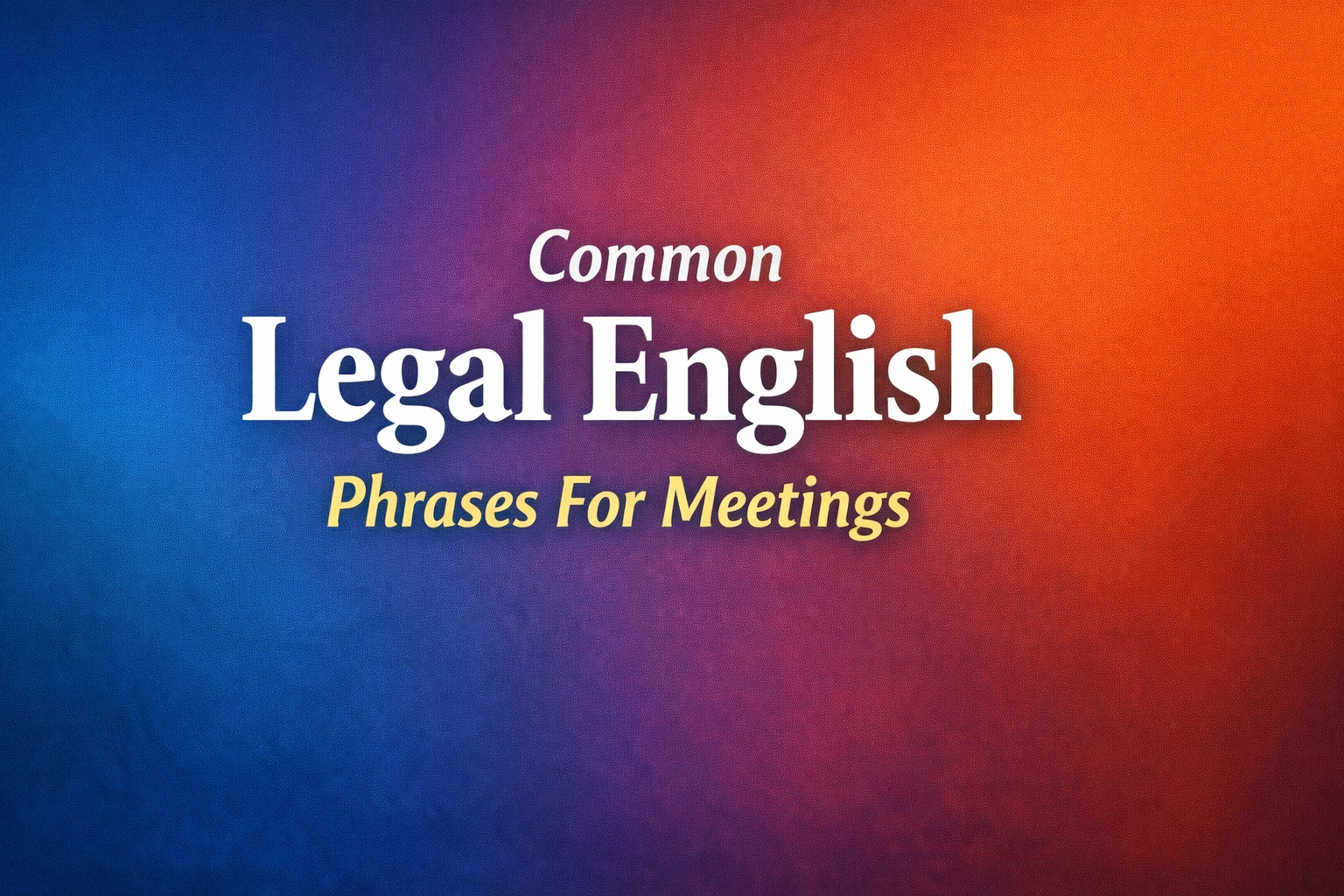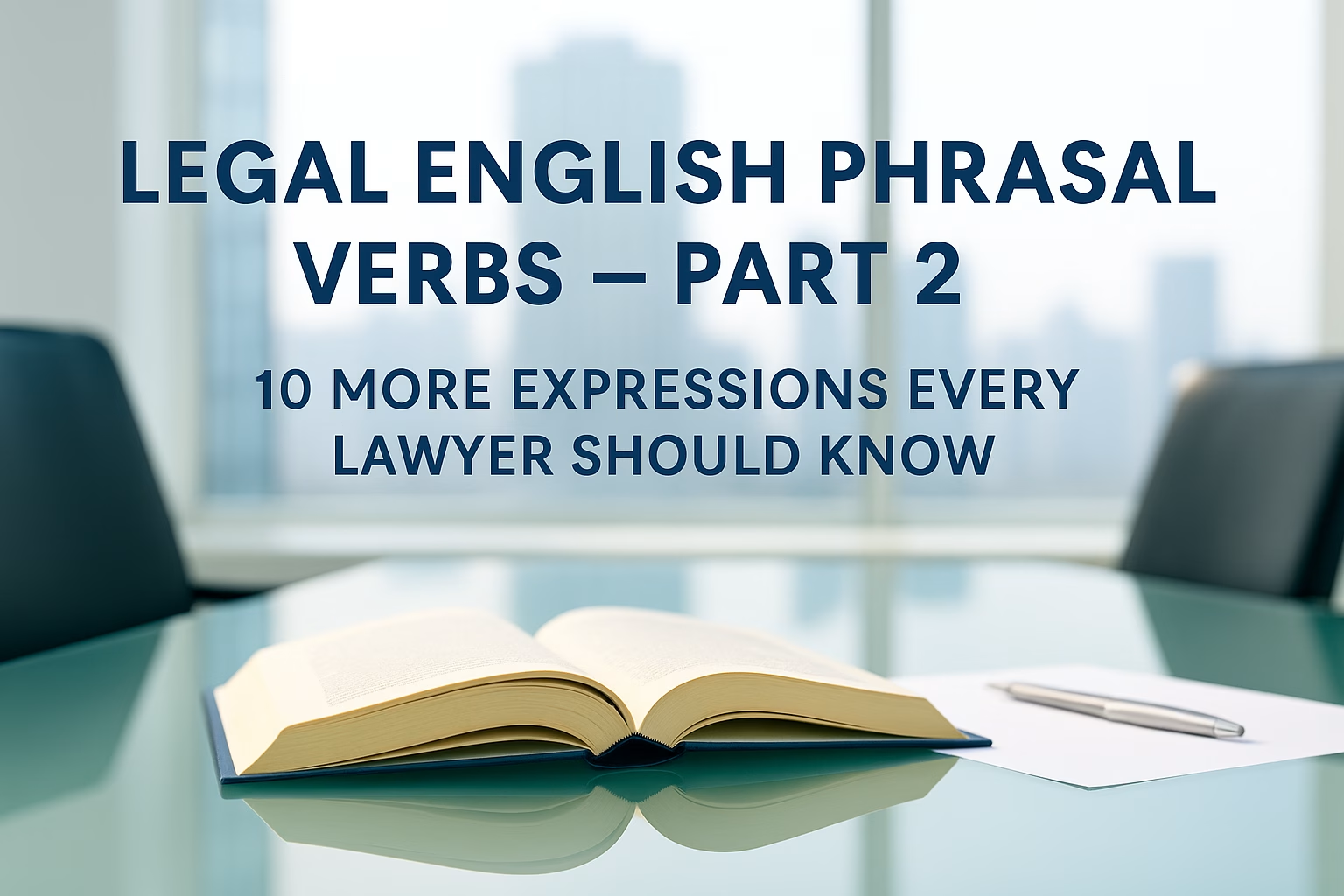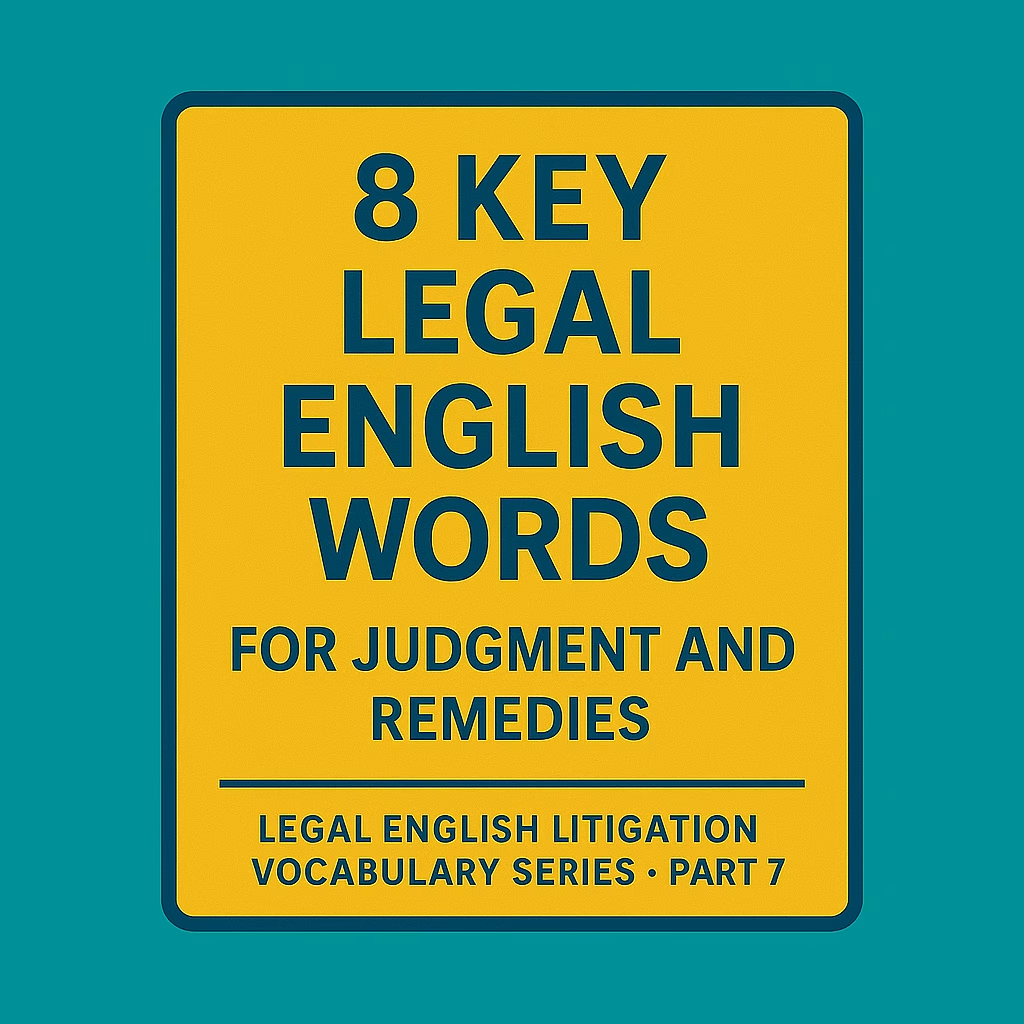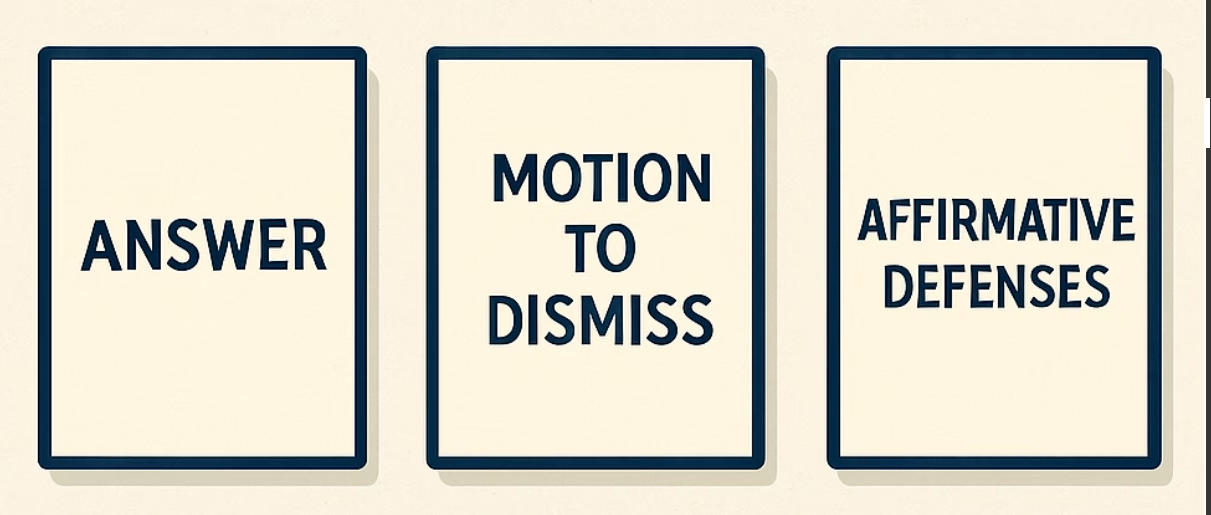Introduction:
Contract drafting relies heavily on precise verbs, and choosing the right one can affect obligations, liability, and enforceability. These 25 verbs are some of the most widely used in commercial agreements. Each entry includes a clear definition and a sample clause so you can see exactly how the term appears in practice.
25 Essential Contract Drafting Verbs
1. Represent
Definition: To make a formal statement of fact that the other party may rely on.
Sample Clause: “The Seller represents that all financial statements provided are true, correct, and not misleading.”
2. Warrant
Definition: To guarantee the truth of a statement or the quality of goods or services.
Sample Clause: “The Contractor warrants that all deliverables shall conform to the specifications set forth in Exhibit A.”
3. Indemnify
Definition: To compensate and protect another party against losses, claims, or liabilities.
Sample Clause: “Vendor shall indemnify, defend, and hold harmless the Company from and against all claims arising out of Vendor’s breach of this Agreement.”
4. Covenant
Definition: To make a binding promise to perform or avoid an action.
Sample Clause: “The Tenant covenants to maintain the premises in good repair at all times.”
5. Acknowledge
Definition: To formally accept or confirm a fact or obligation.
Sample Clause: “The Employee acknowledges that any confidential information obtained shall remain Company property.”
6. Disclose
Definition: To reveal or provide information required under the contract.
Sample Clause: “Each party shall promptly disclose any material changes affecting its ability to perform.”
7. Assign
Definition: To transfer contractual rights to another party.
Sample Clause: “No party may assign this Agreement without prior written consent, except to a successor by merger.”
8. Delegate
Definition: To transfer contractual duties or performance obligations.
Sample Clause: “Supplier shall not delegate performance of its obligations without the Company’s approval.”
9. Execute
Definition: To sign a contract with intent to be legally bound.
Sample Clause: “This Agreement is effective upon being executed by both Parties.”
10. Terminate
Definition: To formally end the contract or the parties’ obligations.
Sample Clause: “Either party may terminate this Agreement upon thirty (30) days’ written notice.”
11. Amend
Definition: To modify or revise the contract terms.
Sample Clause: “This Agreement may be amended only by a written instrument signed by both Parties.”
12. Notify
Definition: To give formal written notice as required by the contract.
Sample Clause: “The Company shall notify the Client of any deviation from the project timeline.”
13. Consent
Definition: To grant approval for a proposed action.
Sample Clause: “The Lender must consent before the Borrower incurs additional debt.”
14. Waive
Definition: To voluntarily give up a contractual right.
Sample Clause: “No failure to enforce any provision shall constitute a waiver of future enforcement.”
15. Enforce
Definition: To compel compliance with contractual obligations.
Sample Clause: “The Company may enforce its rights under this Agreement through any available legal remedy.”
16. Guarantee
Definition: To promise performance or obligations of another party.
Sample Clause: “The Parent Company hereby guarantees full performance of the Subsidiary’s obligations.”
17. Perform
Definition: To carry out obligations under the agreement.
Sample Clause: “The Contractor shall perform all services in accordance with the standards stated herein.”
18. Deliver
Definition: To provide goods, documents, or work product as required.
Sample Clause: “The Consultant shall deliver the final report no later than July 1, 2025.”
19. Limit
Definition: To restrict liability, responsibility, or financial exposure.
Sample Clause: “The Parties agree to limit liability to direct damages only, expressly excluding consequential, incidental, and punitive damages.”
20. Resolve
Definition: To settle disputes or disagreements.
Sample Clause: “The Parties shall first attempt to resolve any dispute through good faith negotiation.”
21. Bind
Definition: To legally obligate a party to the contract.
Sample Clause: “This Agreement shall bind the Parties and their permitted successors.”
22. Comply
Definition: To act in accordance with laws, obligations, or contract terms.
Sample Clause: “The Company shall comply with all applicable regulations.”
23. Retain
Definition: To keep possession, control, or legal rights.
Sample Clause: “The Client shall retain all intellectual property rights in the Deliverables.”
24. Mitigate
Definition: To reduce or minimize losses or damages.
Sample Clause: “The Claimant shall mitigate damages arising from any breach.”
25. Undertake
Definition: To formally agree to perform an obligation; a strong contractual commitment.
Sample Clause: “The Service Provider undertakes to meet all performance standards described in Schedule 1.”
Try Personalized Lessons with a Legal English Teacher
At LegalEnglish4Lawyers.com, you can learn directly with an experienced lawyer and Legal English teacher. Lessons focus on both Legal English and Business English, helping you:
- Master the vocabulary of contracts, negotiations, and compliance
- Build confidence in client meetings, presentations, and written communication
Ready to start? Book your personalized lesson today.
Disclaimer
The content provided herein is only for discussion purposes and may contain errors. The reader is responsible for confirming the accuracy of the information provided. The content does not constitute legal or professional advice. We disclaim any liability for any loss or damage incurred directly or indirectly from the use of this information.
Common Legal English Phrases For Meetings
Introduction Legal meetings are often fast-paced, informal in tone, and full of expressions that nev…
How Lawyers Can Use Breathwork To Reduce Stress and Improve Clarity and Focus
Introduction: Breathwork Affects Clarity, Focus and Stress. Controlled breathwork from the yogic tra…
25 Essential Contract Drafting Verbs Every Lawyer Should Know
Introduction: Contract drafting relies heavily on precise verbs, and choosing the right one can affe…
Legal English for Lawyers: 20 Real Phrases Lawyers Use to Talk About Their Cases
Introduction: This list of legal English phrases may seem somewhat random — and that’s because it is…
How CEOs Are Talking About AI in the Workplace: 21 Key Terms Lawyers Should Know
Introduction: Artificial intelligence (AI) is transforming not only how businesses operate but also …
27 Useful English Expressions for Lawyers in the Workplace
Strengthen Your Communication Inside and Outside the Office with 27 Useful English Expressions for L…
Reduce Stress After Work With the Powerful Technique of One-Pointedness (Ekāgratā)
Reduce stress, restore calm, and gain clarity after a busy day with one-pointedness (ekāgratā) as de…
Mastering Legal English: 8 Strategies for Non-Native English-Speaking Lawyers and Law Students
Introduction. For lawyers and law students who speak English as a second language, developing fluenc…
Legal English Phrasal Verbs – Part 2: 10 More Key Expressions Every Lawyer Must Know
Introduction. Legal professionals use phrasal verbs every day—often without even realizing it. Wheth…
Appeals and Enforcement – 8 Key Legal English Vocabulary Words – Litigation Vocabulary Series – Part 8
Introduction To Legal English for Appeals and Enforcement. The litigation process doesn’t always end…
Judgment and Remedies: 8 Key Legal English Words – Legal English Litigation Vocabulary Series – Part 7
Introduction To Judgment & Remedies. When a trial concludes, the court enters its decision—and t…
The Trial Stage Legal English Vocabulary – 8 Essential Litigation Vocabulary Terms- Part 6
Introduction To The Trial Stage. The trial is the culmination of months—or years—of litigation strat…
Pre-Trial Motions and Summary Judgment-Essential Litigation Vocabulary-Part 5
Introduction To Pre-Trial Motions and Summary Judgment. As litigation approaches trial, pre-trial mo…
Discovery Phase-Essential Litigation Vocabulary-Part 4
Introduction To The Discovery Phase. The discovery phase is often the longest and most complex part …
Defenses & Responsive Pleadings-Essential Litigation Vocabulary-Part 3
Introduction: Defenses & Responsive Pleadings After a lawsuit is filed, the defendant’s response…
Filing a Lawsuit-Essential Litigation Vocabulary-Part 2
Introduction Filing a lawsuit formally initiates a legal dispute and sets in motion the procedural a…
Pre-Litigation Stage-Essential Litigation Vocabulary-Part 1
Introduction Litigation doesn’t begin in the courtroom—it often starts long before a complaint is fi…
10 Legal English Terms Every International Lawyer Should Know
Whether you’re drafting a contract, negotiating a deal, or advising clients across borders, here are…
17 Key Vocabulary Words for Mergers and Acquisitions
In this post, we’ll break down 17 key vocabulary words for mergers and acquisitions (M&A). These…
12 Useful Trademark Vocabulary Words:
Understanding 12 Key Trademarks Terms. Trademarks play a crucial role in protecting brands and maint…
Legal English Phrasal Verbs:
20 Essential Expressions for Lawyers. Phrasal verbs are a key part of English communication, and law…
Venture Capital Start Up Glossary: 22 Key Terms Every Startup Should Know
Navigating the world of venture capital (VC) can feel like learning a new language. Whether you are …
















